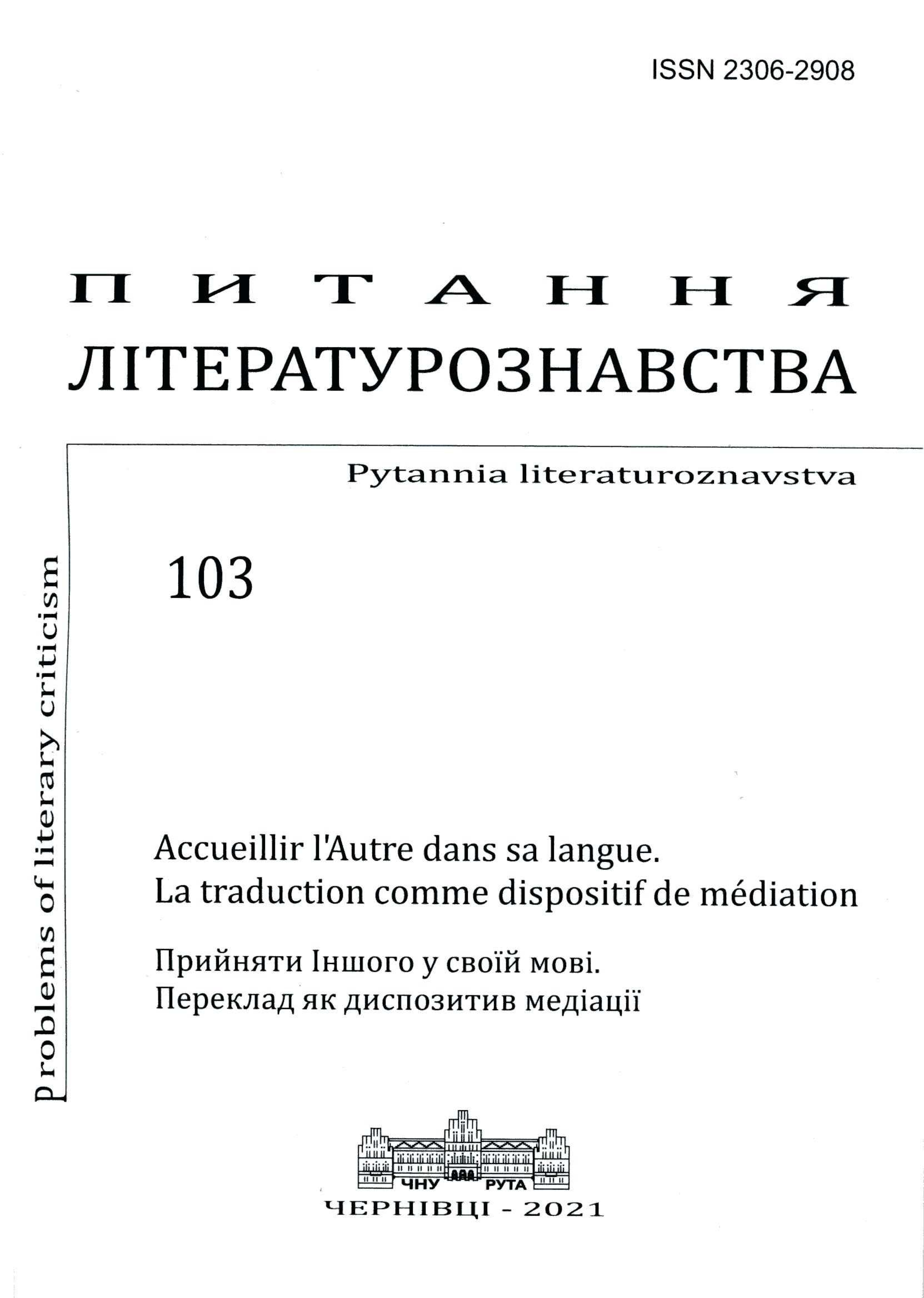L’Unheimliche en tant que source du fantastique. Autour de la traduction des notions de l’« étrange » todorovien et de l’« inquiétante étrangeté » freudienne
The Unheimliche as Source of the Fantastique. On the Translation of the Concepts of Todorov’s “Étrange” and Freud’s “Inquiétante Étrangeté”
Author(s): Jun MitaSubject(s): Anthropology, Language and Literature Studies, Psychoanalysis, Translation Studies
Published by: Чернівецький національний університет імені Юрія Федьковича
Keywords: fantastic; unheimlich; inquiétante étrangeté; uncanny; Tzvetan Todorov;Sigmund Freud;
Summary/Abstract: This study examines the problem of the translation of the concepts of “étrange” in the theory of the fantastic in literature by Tzvetan Todorov (1939–2017) and of Unheimliche by Sigmund Freud (1856–1939). Todorov defines clearly the realm of “fantastique” as an intermediary genre situated between two poles: “merveilleux” (lit. marvellous) and “étranger” (lit. strange, odd). The latter term is translated by the substantive adjective “uncanny” in English and Unheimliche in German. However, Unheimliche is also used by Freud to designate a psychoanalytical notion, and the common English translation is “uncanny”. This comparative analysis reveals that, on the contrary, the Freudian notion of Unheimliche and the Todorovian notion of “fantastique” are equivalent and that they both refer to a temporary nature. This comparison makes it possible to clarify the mechanisms of the fantastic in literature. Todorov indeed does not explain where the “hesitation” in the face of an apparently supernatural event comes from, even though this uncertainty is the pivot of his theory. However, Freud’s considerations lead us to understand that it is because such an event shakes our modern rational convictions, and because the old superstitious beliefs convictions that we should have “overcome” return in the form of the Unheimliche.
Journal: Питання літературознавства
- Issue Year: 2021
- Issue No: 103
- Page Range: 169-183
- Page Count: 15
- Language: French

